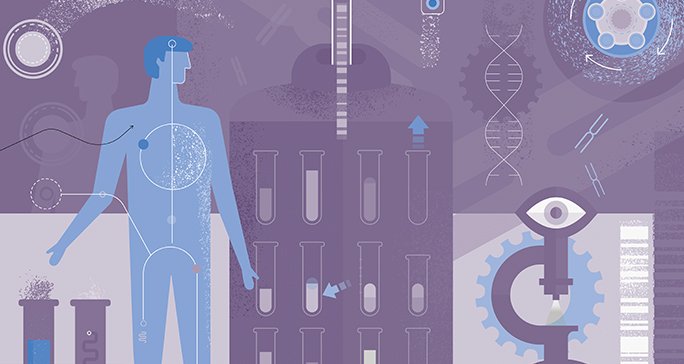- Diseases
- Acoustic Neuroma (14)
- Adrenal Gland Tumor (24)
- Anal Cancer (66)
- Anemia (2)
- Appendix Cancer (16)
- Bile Duct Cancer (28)
- Bladder Cancer (68)
- Brain Metastases (28)
- Brain Tumor (230)
- Breast Cancer (716)
- Breast Implant-Associated Anaplastic Large Cell Lymphoma (2)
- Cancer of Unknown Primary (4)
- Carcinoid Tumor (8)
- Cervical Cancer (154)
- Colon Cancer (164)
- Colorectal Cancer (110)
- Endocrine Tumor (4)
- Esophageal Cancer (42)
- Eye Cancer (36)
- Fallopian Tube Cancer (6)
- Germ Cell Tumor (4)
- Gestational Trophoblastic Disease (2)
- Head and Neck Cancer (6)
- Kidney Cancer (124)
- Leukemia (344)
- Liver Cancer (50)
- Lung Cancer (288)
- Lymphoma (284)
- Mesothelioma (14)
- Metastasis (30)
- Multiple Myeloma (98)
- Myelodysplastic Syndrome (60)
- Myeloproliferative Neoplasm (4)
- Neuroendocrine Tumors (16)
- Oral Cancer (100)
- Ovarian Cancer (170)
- Pancreatic Cancer (166)
- Parathyroid Disease (2)
- Penile Cancer (14)
- Pituitary Tumor (6)
- Prostate Cancer (144)
- Rectal Cancer (58)
- Renal Medullary Carcinoma (6)
- Salivary Gland Cancer (14)
- Sarcoma (236)
- Skin Cancer (296)
- Skull Base Tumors (56)
- Spinal Tumor (12)
- Stomach Cancer (60)
- Testicular Cancer (28)
- Throat Cancer (90)
- Thymoma (6)
- Thyroid Cancer (98)
- Tonsil Cancer (30)
- Uterine Cancer (78)
- Vaginal Cancer (14)
- Vulvar Cancer (18)
- Cancer Topic
- Adolescent and Young Adult Cancer Issues (20)
- Advance Care Planning (10)
- Biostatistics (2)
- Blood Donation (18)
- Bone Health (8)
- COVID-19 (362)
- Cancer Recurrence (120)
- Childhood Cancer Issues (120)
- Clinical Trials (624)
- Complementary Integrative Medicine (24)
- Cytogenetics (2)
- DNA Methylation (4)
- Diagnosis (230)
- Epigenetics (6)
- Fertility (64)
- Follow-up Guidelines (2)
- Health Disparities (14)
- Hereditary Cancer Syndromes (122)
- Immunology (18)
- Li-Fraumeni Syndrome (8)
- Mental Health (118)
- Molecular Diagnostics (8)
- Pain Management (62)
- Palliative Care (8)
- Pathology (10)
- Physical Therapy (18)
- Pregnancy (18)
- Prevention (894)
- Research (390)
- Second Opinion (74)
- Sexuality (16)
- Side Effects (604)
- Sleep Disorders (10)
- Stem Cell Transplantation Cellular Therapy (216)
- Support (404)
- Survivorship (322)
- Symptoms (184)
- Treatment (1774)
Starting chemotherapy? 6 questions to ask
4 minute read | Published November 08, 2017
Medically Reviewed | Last reviewed by an MD Anderson Cancer Center medical professional on November 08, 2017
Finding out that you need chemotherapy can be overwhelming. But as I’ve learned from working with cancer patients as a nurse over the past 18 years, it’s a little easier to manage when you know what to expect.
And knowing what to expect requires asking the right questions. Below are six questions you and your caregiver should ask your care team before you start chemotherapy.
What is my treatment plan?
There are many different chemotherapy drugs. Your chemotherapy treatment may use one drug or a combination of drugs. So, ask for the name of each drug you will be receiving. At MD Anderson, we give our patients a printout for each medication they’ll be receiving. It describes how the medications work, as well as side effects and ways to manage them.
It’s also important to ask how long you’ll be receiving chemotherapy. Chemotherapy is often given in “cycles.” This means the treatment is repeated on a regular schedule with days or weeks of rest in between. For instance, you may receive a dose of chemotherapy on days 1, 5 and 9 every 21 days (3 weeks) for a total of 6 cycles. This means your treatment would last approximately 18 weeks (multiply 6 cycles by 3 weeks). Knowing this information will help you plan ahead.
What side effects may I experience?
Many patients experience side effects such as hair loss, fatigue, nausea and chemobrain during and after chemotherapy. But the side effects you experience will depend on the specific type of chemotherapy drugs you’re taking. So ask your doctor what you can expect, though it’s important to remember that the length, severity and specific side effects vary from one patient to the next.
How can I manage side effects of my chemotherapy?
Discuss any possible side effects that you’re concerned about with your oncology nurse. Request medications to treat the more common side effects, such as nausea, before starting chemotherapy so that you have them if necessary. If your chemotherapy regimen causes hair loss and you want a wig, request a prescription before starting chemotherapy so you will be prepared. Many insurance companies offer wig reimbursement for patients on chemotherapy.
Communicate with your oncology team if you are having side effects that aren’t well controlled. Your oncology nurse is an expert at reviewing your symptoms and formulating a comprehensive plan for managing them.
How will my chemotherapy be administered?
There are several ways we administer chemo. The most common method is through an IV, where we insert a needle into a vein and use tubing to attach to a plastic bag holding the drug. Other methods may include:
- Oral chemotherapy, which means you’ll take a pill or drink the medication in liquid form
- Injections administered into the muscle, under the skin or directly into a cancer lesion
- Hepatic arterial infusion, where a tiny pump is surgically inserted under the skin and connected to the hepatic artery, administering drugs through the pump over about two weeks. This method is used to treat liver cancer.
If you’re receiving more than one chemotherapy drug, each drug may be administered in a different way depending on your specific treatment plan. Ask your doctor to review this with you.
Whom should I contact if I have problems -- and when and how should I contact them?
Before starting chemotherapy, find out whom to contact -- and when -- if any issues arise. There may be some situations when you should contact your oncologist, but in many cases, a physician assistant, nurse or medical assistant can help.
If you’re a patient at MD Anderson, you should contact your care team through myMDAnderson, our secure patient portal, for most issues, such as scheduling, new side effects you’re experiencing, questions about your treatment plan and prescription refills. But you should also find out how to get in touch – and whom to contact -- if you have an urgent issue that can’t wait, such as worsening or uncontrolled side effects or an adverse reaction to a medication.
When should I go to the emergency room?
During chemotherapy, there are certain scenarios where your doctor may recommend you go to the emergency room. These may include if you:
- have a fever over 101 F,
- can’t keep fluids down due to nausea and vomiting, and/or
- have unexpected bleeding, such as a bloody nose, that won’t stop.
Ask if your doctor prefers that you visit a certain emergency room.
Once you have all of this information, be sure to share it with those who will be helping with your care at home. That way, if you aren’t feeling well, others will know what to do.
Misti DeMargel is a clinical nurse at MD Anderson in The Woodlands.
Request an appointment at MD Anderson online or by calling 1-866-799-1689.

It’s a little easier to manage when you know what to expect.
Misti DeMargel
Clinical Nurse





